By Alicia Moyles, Assistant Director – Post 16, The Education People
Introduction
All of us will no doubt remember being asked ‘What do you want to be when you grow up?’. This question was asked by a range of adults to poor unsuspecting children, throughout their childhood. Most of us had a dream of what being ‘grown up’ would look like, from becoming a doctor or a teacher, fisherman, to working in a shop selling ice creams, maybe becoming a dancer or even an astronaut. We had wild imaginations and high expectations of moving into a career, when we left schools, that we would really enjoy. After all, we need to enjoy any role we move into, most of us can now expect to work for 50 years before we can look to draw a state pension.
The reality
Adults have often made up their minds as to the capabilities of children they know both personally and professionally by the time the child is 7 years old, broadly based on academic achievements during their short time at school and by comparing peers. These assumptions, if not challenged, can become negative in terms of how we value young people and begin to predict the futures of their career pathways.
We are all influenced by what is around us, and for a child that has special education needs, or/and a physical or sensory requirement (SEND) it is even more pertinent. It’s how careers structuralism theory is acted out – children of doctors become doctors, children of builders become builders, this happens across all labour markets and across all class boundaries. In one survey 70% of students wanted to become teachers – it’s the only job they encountered regularly!
Then there are well meaning adults who provide what they see as advice, such as’ You’re good at cooking why don’t you become a chef, you’d like that wouldn’t you?’ Or ‘Gosh, you’re good with your hands, you need to get a trade’. Or ‘ You can do better than being a hairdresser, you’ve got a good brain’. All of the above is nothing but random opinions on preconceived ideas; none is professional careers advice and guidance, and nothing empowers the young person to explore the job market and understand their unique talents, skills and personalities. At best it’s stereotyping and at worse it’s damaging to a young person’s self esteem, confidence and future prospects.
All jobs are equally valuable in society, manual or academic or a combination of the two, I for one would only trust a professional hairdresser to touch my hair! Add into the mix a special educational need and the assumptions for these young people can be restricted further.
Embedding Supported Employment in schools
Teachers have a heavy curriculum of national standards to deliver in schools in line with the government requirements – measuring outcomes in terms of results and targets at different key stages. It can be possible to lose sight of what we go to school for, which is to move into adulthood, prepared, and ready to enter employment – whatever that career choice may look like.
For students to be able to make well-informed realistic decisions about their career pathway they need to understand the following:
- Self-awareness: What do I like? What am I good at? What is holding me back?
- Opportunity Awareness: What jobs could I do? Where can you work?
- Information: What is the labour market like? What qualifications/skills will I need?
- Transition: What next steps do I need to take? Where can I study?
Careers guidance delivered by qualified careers professionals is the only way to find impartial, measured guidance.
Students with Special Educational Needs (SEND) are often overlooked in terms of talking about employment at an early age. It is never too early to look at pathways after leaving school and understanding clearly what the work of work is like. The working life is a long period of time, it’s essential we find work that we want to do, makes us happy and provides the lifestyle we need, be it 8 hours a week or 40. Employers tell us they are not looking for those with the highest qualification but rather those that want to work, are reliable and have the drive to succeed.
At The Education People we have worked with Kent schools and launched the Supported Employment in Schools Framework. This is aimed at raising the aspirations of students with SEND through training and mentoring teachers, governors and other school staff to bring career pathways to the forefront of their students and their parents’ minds. The programme is in line with Ofsted and Gatsby Benchmarks and embeds elements of the 5 stages of Supported Employment and its 12 core values that create impact and additionality to current careers strategies. The programme gives schools practical methods and tools to engage with both students and employers. Vocational profiling is taught to the schools in order to start a conversation at a young age regarding topics such as dream jobs, skills, preferred environments and barriers to employment. Employers are valued as much as the students, only by bridging the divide can we prepare students for the world of world, this is about preparing students for the workplace, that is fit for employer’s needs.
The programme is split into three distinct areas, the first being a consultation to assess what is already in place in the school. The second involves formal training of the Supported Employment Model that would specifically benefit each school, depending on their individual needs and the third stage offering mentoring to staff to embed the model into the curriculum and build in the training.
An equally important part of the programme focuses on engaging with employers, it supports the school to understand the needs of local and national employers and how best to work with them. Practical training and support are given around how to do this in a busy school environment where time restraints are a key factor, as well as considering the time employers have available.
Feedback from schools is very positive and makes the direct link between what schools can embed into their curriculum to raise aspirations for students with SEND and help plan for the transition into employment. Employers have told us that the programme supports them to work with engaged students with SEND and understand what an asset this potentially untapped pool of wonderful young people can bring to the workplace.
Evidence shows that by opening the minds of students with SEND, and those of their support networks, students can progress into meaningful career opportunities. By preparing for adulthood and transitioning successfully from education to employment young people with SEND can become fulfilled members of society where they have the opportunity to be valued as an employee, independent, and live a fulfilled life.
Oh, and it’s okay not to know what you want to be when you grow up, you need just to know how to explore career pathways, understand what employers are looking for and seek appropriate support when you’re ready to take the next step.
Good career guidance perspectives from the special educational needs and disabilities sector [ https://www.goodcareerguidance.org.uk/assets/file?filePath=send/good-career-guidance-perspectives-from-the-send-sector.pdf]
Supporting SEND – GOV.UK (www.gov.uk)
The SEND Gatsby Benchmark Toolkit 1051_SEND Gatsby Toolkit Refresh V8.pdf (careersandenterprise.co.uk)

